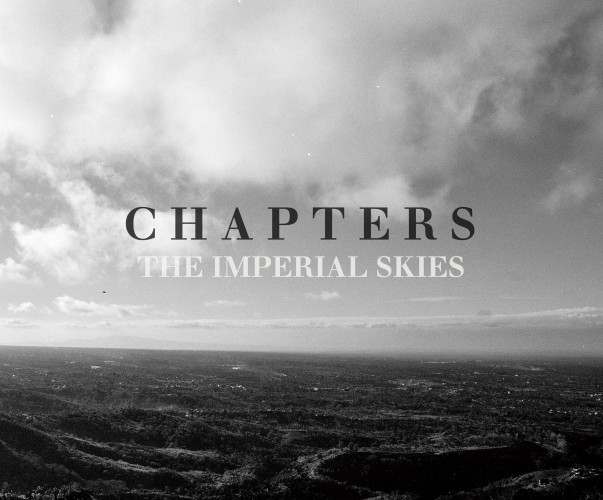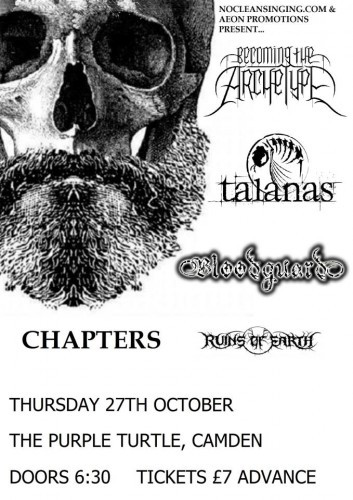(In this post we present our second review of the new album by Chapters — this one written by TheMadIsraeli — as well as the premiere of a combined song from the new album: “March of the Puritan/Arising”.)
This review comes later than I had planned. I was going to publish something I had originally written but it just didn’t convey the passion I have for this album. Neither did I feel, in hindsight, that I gave Chapters their musical due, or rather, I was missing the target as far as what they do. The thing is, Chapters channel a musical era of metal that I was passionately into and couldn’t get enough of. The fact that a band like this existed when I discovered them back in 2011 excited me, and that excitement hasn’t waned one bit. Their new album The Imperial Skies is one of the best releases of the year, no doubt, and it re-captures the excitement of a musical movement that unfortunately got trampled underfoot by the bullshit metalcore explosion that occurred from 2005 onward.
Chapters are, ironically because of their British origin, New Wave of American Metal. I don’t say this solely as a matter my own speculation or opinion, mind you. In the friendships I’ve developed with masterminds Joe Nally and Angus Neyra, we’ve discussed this and they pretty much agree. While they do draw influences from Death and from Bay Area thrash, it’s bands such as Shadows Fall, Lamb of God, God Forbid, Himsa, and early All That Remains who are the foundation Chapters have built upon. Whether you want to call it metalcore (which I argue that stuff was) or not, Chapters fully embrace the thrash/hardcore/melodic death metal combination in which those bands fully entrenched themselves.
As such, you get all the expected elements: Melodic technical guitar work, driving emotive melodic passages, vocals with a great deal of passion behind them that sound like they’re being delivered at the risk of the vocalist’s voice, and beautiful acoustic interludes. I eat this shit up, always have and always will, but Chapters deliver it exceptionally well, leagues beyond anyone else who’s tried to capture this sound since its heyday. Continue reading »



 Chapters is based in Reading, England, a place that has become an absolute hot bed for metal as of late, most notably for melothrashers Sylosis. Chapters has actually been a consistent touring mate for Sylosis, and has been hard at work for a long time on their debut album The Imperial Skies. Unsigned and approaching the project with an ambitious DIY ethic, it seems these guys may be ready to take the world by storm once this album drops. Which should be soon, although no date is presently set.
Chapters is based in Reading, England, a place that has become an absolute hot bed for metal as of late, most notably for melothrashers Sylosis. Chapters has actually been a consistent touring mate for Sylosis, and has been hard at work for a long time on their debut album The Imperial Skies. Unsigned and approaching the project with an ambitious DIY ethic, it seems these guys may be ready to take the world by storm once this album drops. Which should be soon, although no date is presently set.